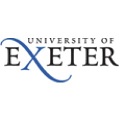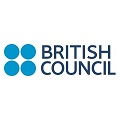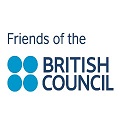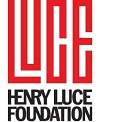Bridging Voices
Contemporary Eastern Orthodox Identity and the Challenges of Pluralism and Sexual Diversity in a Secular Age
From Spring 2018 through Spring 2020, Dr Brandon Gallaher (Department of Theology and Religion, Exeter University) and Dr Aristotle Papanikolaou (Orthodox Christian Studies Center, Fordham University) are spearheading an international, interdisciplinary research project as part of the second iteration of the British Council’s “Bridging Voices” project.
The project explores the complex and diverse responses of Eastern Orthodox Christianity to an increasingly pluralistic and secular world, specifically in respect of an increase in an acknowledgment of sexual diversity, which is manifested in rapidly changing legal formulations of same-sex rights and relationships and the encounter between openly-LGBTQ+ persons and Orthodox communities both in the West and traditionally Orthodox lands. Contributors to the project reflect on the Church’s theological tradition and customs in conversation with secular policymakers and lobbyists, with the aim of facilitating a mutually-enriched conversation which will continue after the formal close of the project.
Read the interim project report Eastern Orthodoxy & Sexual Diversity: Perspectives and Challenges from the Mode (150 pages).
Read the short final report Orthodox Christianity, Sexual Diversity & Public Policy.
Watch a short video introduction to the Oxford conference.
Read the press release of the Oxford conference. You can also read the Russian press release or the Romanian press release.
Read a short interview about the Oxford conference (in German).
Background
The Eastern Orthodox Churches today number some 260 million members across the globe. Their traditional territories and populations centers are located in Eastern Europe and the Caucasus, the Middle East, and North Africa, but there is also an Orthodox “diaspora” of tens of millions outside these lands. All of these societies and cultures have encountered—and to some extent, embraced—modernity and secularization to varying degrees and in many different ways in the recent past. While Orthodox Christians thus live within multiple modernities and secularities in diverse global contexts, the Orthodox Church remains, in teaching, practice, and ethos, largely “pre-modern.”
The Church’s struggle to define and articulate its identity in these new contexts (a struggle paralleled in almost all Christian traditions that have endured from pre-modernity to the present) has frequently yielded a condemnatory reaction against “the West” and an attack on “secularization.” This is the case, despite the fact that many Orthodox Christians, including both clergy and intellectuals, and those living in traditional “non-Western” Orthodox territories, are thoroughly “Westernized” and highly “secularized” in their worldviews. But a more constructive engagement with this new reality is required because the challenging questions posed to Orthodoxy by pluralism and secularism do not seem likely to vanish in the near future.
One significant conflict between Orthodoxy and the secular world has emerged over the cultural acceptance and legal protection of sexual diversity. Within Orthodox discourse, one often encounters a denial of the legitimacy (or, even, existence) of LGB—let alone TQ+—persons and identities. The Great and Holy Council at Crete (2016) condemned same-sex unions as being entirely incompatible with Orthodox Christian teaching and targeted the sexual diversity of Western culture more generally as an example of “evil in the world.” In Orthodox discourse, one generally finds little nuance in the understanding of these issues: the complex theological, anthropological, biological, and sociological issues at play are usually conflated and reduced to a rejection of any dissent from a gender-binary heterosexual norm.
Aims
This project seeks to enable a sustained, complex, and respectful conversation about the challenges of pluralism in general and sexual diversity specifically to Eastern Orthodox identity in a secular age. It will approach the issues from a variety of perspectives, both religious and secular, drawing on experts in relevant fields. In accord with the aims of the “Bridging Voices” enterprise, the dialogue will include not only clergy, theologians, and scholars of Eastern Orthodoxy, but also representatives of secular governments, NGOs, think tanks, and other policy-making bodies. It is hoped both that the expertise of these participants will enrich and clarify the conversation on pluralism, secularism, and sexual diversity within the Orthodox Church, and that the project will enable representatives of secular democratic governments and organizations to engage more fully with the traditions of Orthodoxy and those cultures which are shaped by its moral and theological commitments.
The project will work with theologians, historians, sociologists, and cultural anthropologists to identify how, why, and in what ways opposition to “sexual diversity” was characteristic of Eastern Orthodox religion and culture in the past and remains so today. This will involve the careful investigation of intellectual and cultural practices and their historical contexts, and subtle analysis of how this has played out in Western “modernity” and “secularity,’ which has developed discourses about sexuality that are disjunctive from those of Orthodoxy. We will collaborate to explore the relationship between traditional Orthodox values and secular government and law in different contexts and question the extent to which the Orthodox Church seeks and require the conformity of secular power to its own moral system and assumes a voice in the public sphere in defense of “traditional values.” We will investigate the potency and appropriateness of the language of “universal human rights” in an Orthodox setting and consider alternative ways of discussing the LGBTQ+ experience.
Thus, the first aim of our research project is to clarify and analyze the current thinking and practice of Eastern Orthodox Christianity with regard to sexual diversity and pluralism in secular contexts. The second aim is to position the fruits of this work within contemporary secular discourses, in order to enable the development of a dialogue between clerics, theologians, and secular organizations, which is mutually beneficial.
For more information, contact: [email protected]
This research is made possible through the support of the British Council, the Friends of the British Council, and the Henry Luce Foundation.



